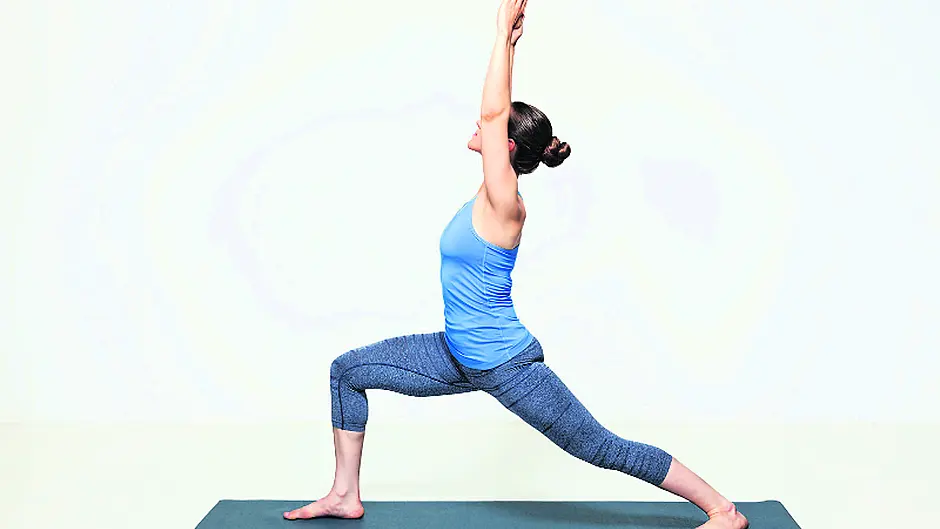Health & Nutrition by Rosie Shelley
Walking is man’s best medicine. – Hippocrates
Although the focus here is mainly on nutrition, I’ve recently come across so much research about the importance of exercise that I thought I’d have to take a look. After all, what we eat is only one aspect of wellbeing, and it goes hand in hand not only with regular activity but also a good night’s sleep, healthy relationships, time to ourselves for relaxation and more. And exercise feeds into all of these things, nourishing the mind as much as the body. (I’m really feeling this right now as, ironically enough, I’ve torn a ligament in my knee and am on crutches—the loss of my dawn walks along the coastline is driving me mad, but that’s another story.)
So some of the latest studies involve the relationship between exercise and brain health. In one, performing some activity a few hours after learning something new made participants far more likely to remember it. In another, yoga was found to be better than brain training exercises like crossword puzzles for improving verbal and visual memory, and those practicing it were also less likely to be anxious or depressed. And a major study concluded that being inactive makes our brains shrink faster—by an average of the equivalent of a year’s ageing for every 20% reduction in fitness levels. Sedentary older adults have more changes in the part of the brain involved in memory and learning.
This comes on the back of several reports into the dangers of inactivity. Many of us are tied to a desk (or a couch!) all day long, and some 35% of us do no exercise at all, with apparently very serious implications. A large Australian study established that watching TV (or using any screen) for six-plus hours a day can take five years off your life. Scientists at Cambridge found that a sedentary lifestyle is responsible for twice as many premature deaths as obesity, raising the risk of heart attack, stroke and some cancers, while a 20 minute daily walk lowered the risk of death by up to 30%. Other research found similar benefits from simply walking around for two minutes for every hour of sitting.
It will all contribute to weight loss of course, and obesity is related to at least eleven cancers, especially hormonal ones (fat cells produce hormones like oestrogen as well as inflammatory markers) like breast, ovarian and prostate cancer. Losing half a stone can reduce your risk of breast cancer by a staggering 50%. And if you’ve already been diagnosed, it could mean a 20% increased rate of survival, while a daily 25 minute walk can double survival rates. Elsewhere, men with the highest fitness levels were 30% more likely to survive prostate cancer. Regular activity has been associated with a 50% lower incidence of colon cancer. Cancer is just one of a multitude (majority) of diseases that are associated with inflammation, and the higher your muscle mass, the lower your levels of inflammation.
In June, researchers concluded that for older people, just fifteen minutes walking a day increased lifespan by 22%, and a study out last year showed that it’s never too late—over 60s doing 20 minutes a day, after years of inactivity, fared far better than those who had become inactive in recent years. Beside cancer, memory loss and obesity, simple walking reduces the incidence of heart issues, insulin resistance, diabetes (by 50%), arthritis (83%), falls (30%), hip fractures (68%), dementia (30%), osteoporosis, muscle weakness, fatigue, IBS, constipation and other digestive problems, colds and ‘flu’s, insomnia, anxiety (48%) and depression (30%). In fact, for mild to moderate depression 30 minutes a day has been found as effective as medication. Step out with a friend and you’ll reap the social benefits while you’re pumping out feelgood brain chemicals and boosting those all important vitamin D levels. To sum it up, regular exercisers live an average of five to seven years longer—and the leaders of a two decade study concluded that, as we age, taking aerobic exercise is the single most beneficial thing we can do for our health.
Experts suggest a minimum of 150 minutes of exercise a week, or just half an hour five days a week, which really isn’t much (but check with your GP first if you’re new to it or have health issues).Try for 45 minutes a day if your goal is weight loss. Of course being active doesn’t have to mean running or going to the gym—unless that’s your thing—it can be anything that you enjoy (so that you’ll get the psychological benefits and also keep it up). From walking by the sea or cycling out for a picnic to swimming, gardening, dancing, yoga, anything at all. I think the thing to remember, whether your aim is to lose weight, improve your mental health or hold back the years, is that being active is not some kind of chore, but the best gift you could give to yourself.








